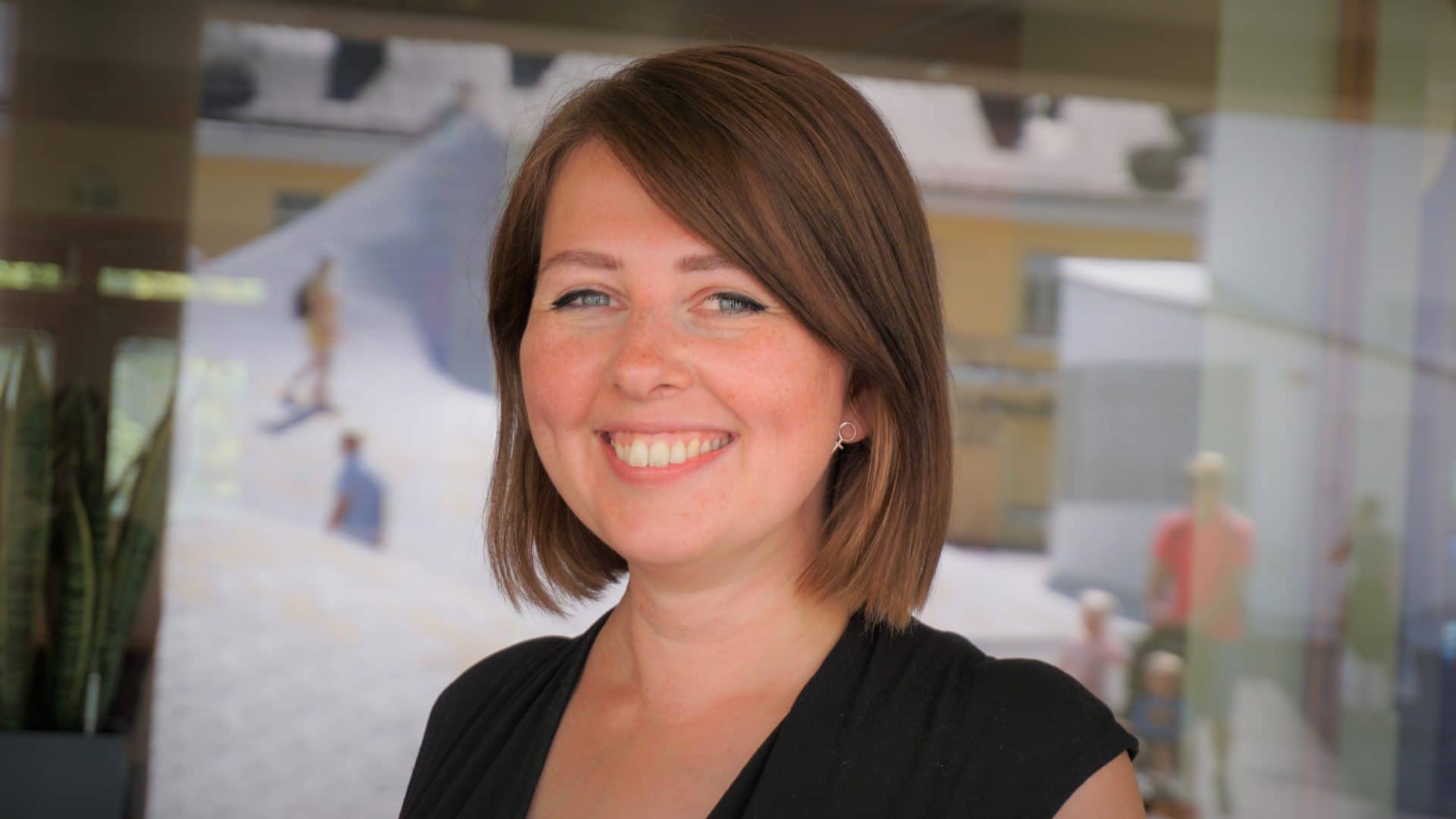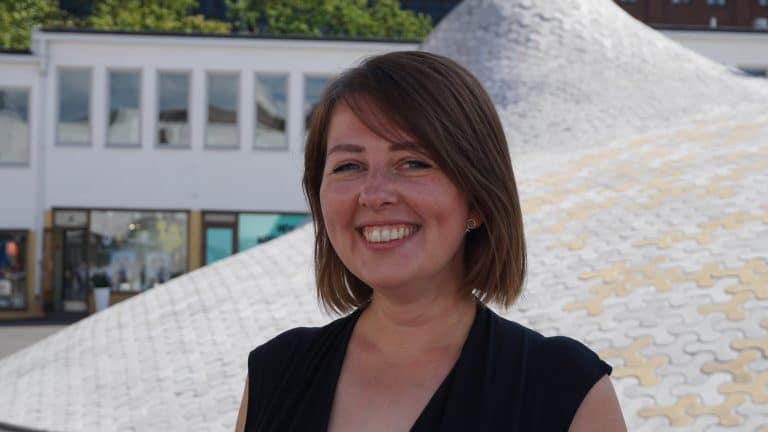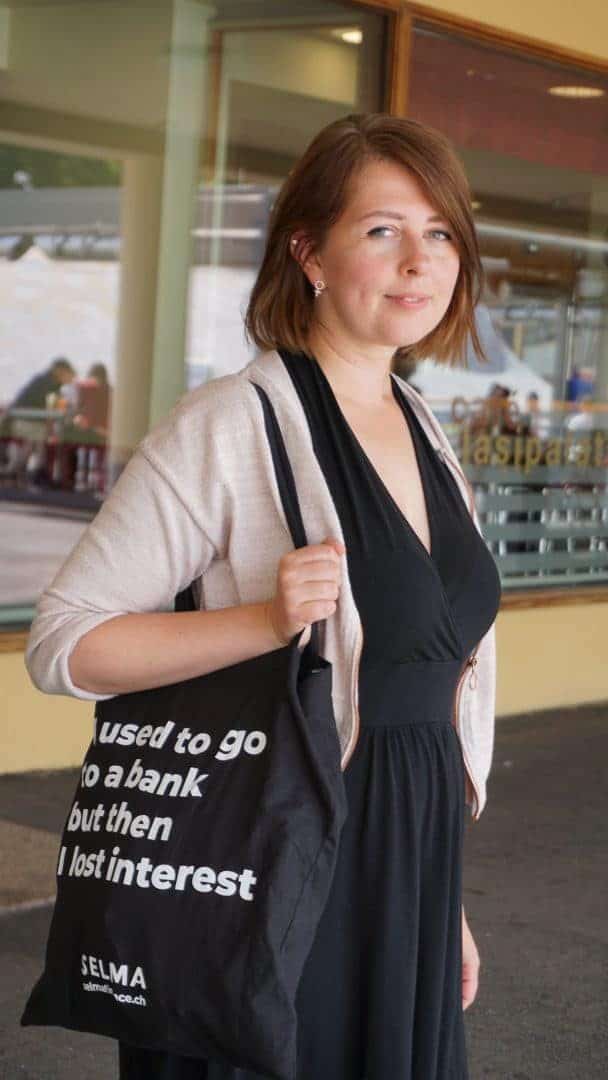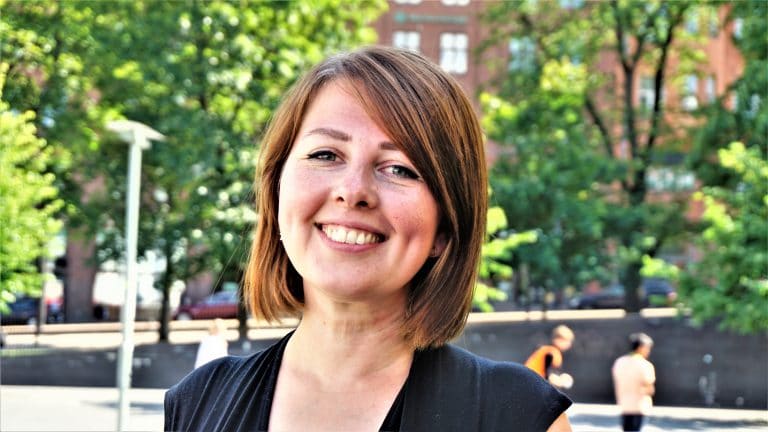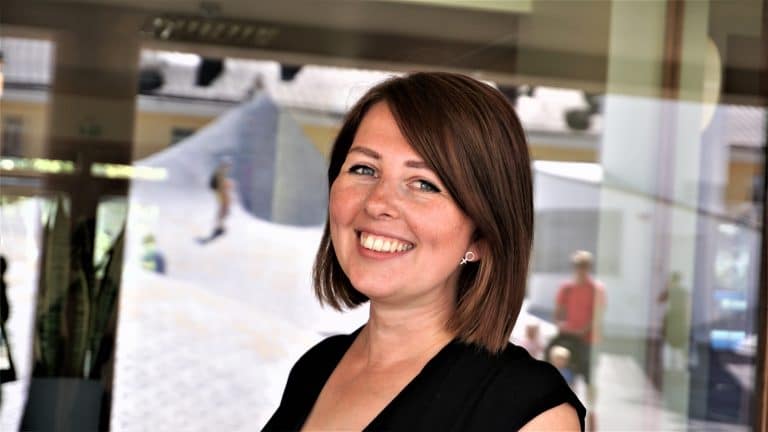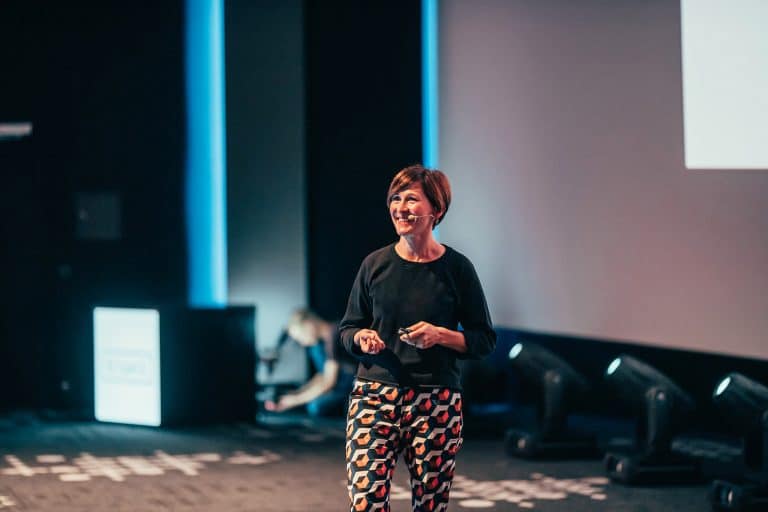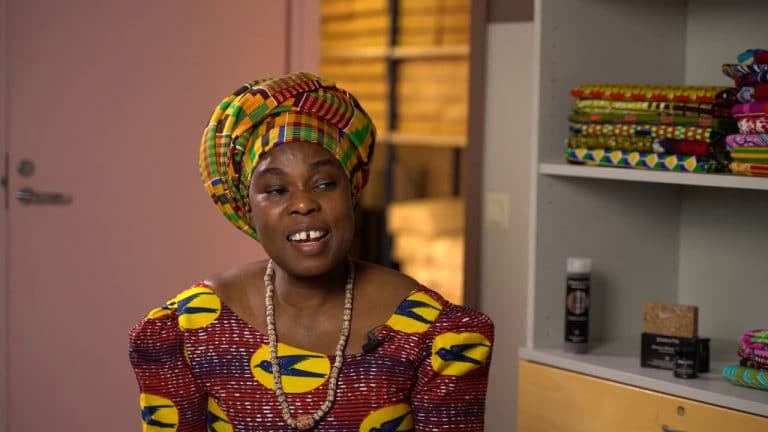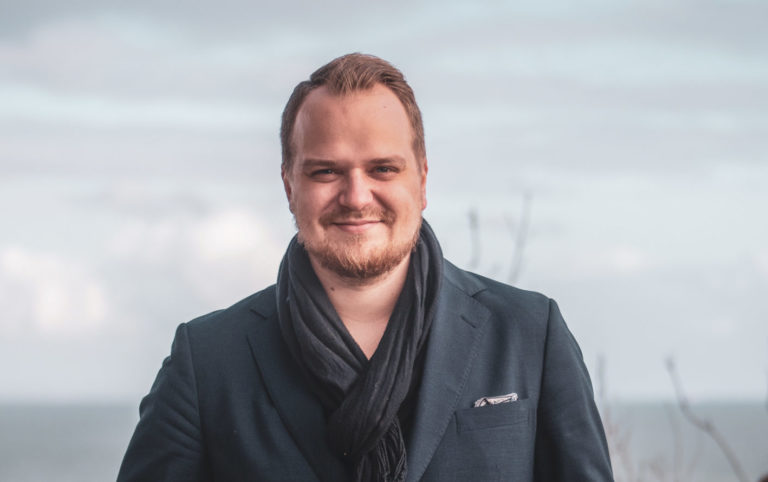Investing is something people should start as early as possible
I joined Selma Finance from the very beginning, there are four of us in the founding team. I started with this project as a freelancer to help with the branding of an ETF search. It’s funny that only after the project was done, I asked the team “So what are these index funds exactly about?”. The idea was to make investing more accessible to everybody. We realized that there are plenty of people who have interest and means to invest, but the investing world is just too complicated. It’s hard to understand how things work and where to start. Many associates investing in something that is very expensive and requires expertise. Some providers do have hidden fees and hard language and that feeds to the stereotype. We at Selma work to change that; to help beginners get investing done without the learning curve, right there at your couch.
In reality, investing is something people should start doing as early as possible. The moment you start to have an income, you should start saving and investing (as long as it makes sense for you, of course). When you don’t have enough money to spare, don’t invest yet.
You don’t have to be an expert in investing to be a co-founder in an investment company
Everything started in 2016. Firstly, we took care of the paperwork, because financial advisory requires a license. Then it took half a year to build and test the prototype under the radar and we soft-launched it in September 2017. So, it took us more or less than 10 months to have a real, live product before introducing it to the public.
I did not have any experience in investment when joining the team. I’m also not the one who makes financial decisions or trade for the customers. Instead, I keep my “head cold”. I still remember how it feels like to not know about investing. As a designer, I find it important to hold on to that feeling, and listen to and empathize with people who have been ignored by the industry so far.
The truth is, you don’t have to be an expert in investing to be a co-founder in an investment company. It’s good to have a founder team with mixed backgrounds. I’m proudly the one who keeps on asking “silly” questions such as: “As a person only starting with investing, I wouldn’t get it, I wouldn’t understand what this means”. And then we will work together to make things clearer and easier to understand.
I appreciate both positive and negative feedback
The most satisfying moment is receiving the client’s feedback. I know it’s a bit of a cliché to say this, but I dig it! When a person uses their time and energy to write a message, it shows that our product means something to them or it’s somehow important to them. So whether it’s negative or positive, I appreciate it all. My favorite feedback is when people are being honest, expressing their experience, like “I did not have a clue about investing and your app helps me to get started easily”.
When I started working in Selma, the first research I did was going to the bank as a potential customer, needing financial advice for investing. I mapped down the steps and feelings that I had during the process and showed it to my team. Then we gathered and analyzed the “service journey” from the customer’s point of view. It was surprising to see the range of emotions that came from talking about your finances with “an expert”: being nervous, feeling lost, embarrassed, pressured, etc. It wasn’t a nice experience.
The team and internal communication are the most important
When I only started freelancing years ago, I thought that the hardest part of entrepreneurship is administration – for example, finance, legal, paperwork. But it’s not. All those things you can learn and get better with on the go. Later on, I realized that the most important thing is the team and its internal communication.
A business is like a family, your co-founders are the family members. Just like with any families, there might be conflicts now and then. Every project will have a share of its misunderstandings and good and bad fights. For me, learning how to listen and how to express myself and making sure everybody is on the same page is a continuous process. The more people in one team, the more different characteristics, personalities, ways of working there will be
Our team has a Swiss, an Austrian, a Finn and a Ukrainian. We are all from different backgrounds, so we have different mindsets. But in reality, a shareholder agreement is not enough, the internal communication is something to work on every week. You should be fragile and talk to each other and reflect on your work as often as possible. You have to take care of the conflicts, keep in mind the mutual goal and set personal interests and ego aside.
To maintain good harmony within the company, we have daily reports where everybody tells what they have been doing, as well as founder meetups, team travel, workshops, and team-vide, bi-weekly retrospective reflections. I’m happy that in our company we deem this important. Whenever anyone is bothered by something, we figure it out together, trying to solve the problem in the very beginning phase before it gets more serious.
Everyone should have a voice
Some people have the means and the interest to do something about their finances but struggle to do so, as they lack the means and tools to do so. My biggest motivation to listen and adapt to people’s needs and put them into the software.
If you look at the financial sector, especially FinTech, it’s rather male-dominated. It’s fine for me but I just think there is room for more women to take part in and show their capability. One reason is that the finance industry is not that rosy, it’s tough indeed. As a woman working in this sector, I sadly found out that many “old habits” persist. I hope the situation will get better!
Don’t make stuff that people don’t need
Our team has built a culture of a customer-centered business. We don’t develop things that people don’t need. That’s why we consciously look for feedback and suggestions from our clients on how to improve our service. We keep on asking questions like “Does this solve the problems you’ve been facing?” and “Is this particular part of the experience nice and smooth?”.
Whatever we are working on needs to make sense for the clients and the business. To apply that in practice in our day-to-day development we use all sorts of service design and software development approaches such as user stories, usability tests, co-development workshops, etc. The bottom line is whether it brings something to the clients, will they like it, is it making their life better.
In my day-to-work, I do a little bit of everything from marketing, UX design, partnership, to investor relations. There really isn’t a “typical day”, but some of the things do repeat, of course. For example, when working with the product, I would likely be involved in doing research, drafting the user journey, making mockups, discussing it with the team and improve things on the go.
I had an interest in art and technology from a pretty young age. I had my first computer when I was 7; I drew a lot and always had the drive to build new stuff with the computer. But this specific UX design career option came to me through study and meeting with people.
Freelancing depends quite heavily on Word of mouth
I have never thought of becoming an entrepreneur. The first drive pushing me to this path is that after graduation I was working in an organization and my contract ended unexpectedly right before Christmas. However, I was in the middle of a project which I was really passionate about, so we made an agreement that I will freelance for that. That opened the door for me to start freelancing. This company ended up being one of my longest clients. I realized it’s not a big deal to become an entrepreneur. Eventually, I became more open to new opportunities, receiving more orders from other individuals and organizations.
The freelance work depends quite heavily on word of mouth. If you do your best to deliver a great outcome, your clients will keep referencing you to their connections. I was also studying at the same time for my master’s degree. So through recommendations, I had just enough projects to keep me occupied. Even though I did not proactively ask for endorsement but I think It’s a very good idea to take the initiate and request for a recommendation.
The three most important things for entrepreneurs to have:
1. Resilience
There will be a time that things suck. My advice is to stay calm acknowledging that there are ups and downs, because there is always a solution to every problem, no matter how serious it is.
2. A drive to be curious
Ask questions, even if it might sound silly. Life is all about making the right question to yourself and to others.
3. Be humble
That’s important because later on when you hire people, they most likely will be much better than you. If your ego is too high, you see yourself as the smartest, it would be really hard for others to work with you effectively. Being humble is one of the most important traits of a great leader.
The four most important activities to spend time in:
1. Taking time for yourself
In other words, maintaining the work-life balance to have both a fulfilling personal and professional life. I was not good at this before. I’m still learning how to do this. Now I practice mindfulness more often. When I have a negative or aggressive feeling, I let them in, acknowledge that yes I am angry or annoyed, and analyze why or what made me feel this way and what I could do to get over it. A practical and simple tip, when you feel tired, don’t hesitate to take a walk outside in nature. It really helps.
2. Educate yourself
Be proactive to mentor yourself. School and classroom are not the only sources to gain more education, you can upgrade your knowledge by reading books, going to conferences, taking online courses, etc. Don’t wait for other people to tell you what to learn, which area of knowledge to improve.
3. Go to (after work) meet-ups
Meeting new people with all kinds of backgrounds, listening to fresh ideas and perspectives is always beneficial, especially people outside of your working industry. Don’t just mingle with people in the same area of expertise. It’s not necessary to always have a business attitude and go to meet up with your business card, just meet people with the intention to get to know people. For example, besides UX design meetups, I also went to education meet-ups which have nothing to do with finance or investment. I have learned a lot about interesting points of view.
4. Find a hobby that makes your body move
You can take on any type of sport, with or without equipment, in a group or individual, as long as it involves physical activity. I like vogue dance. I have been doing it for quite a long time, although I had a bit of a pause recently. Voguing really helped me to forget the daily hassles and enjoy life better.
In general, entrepreneurship made my life better
Although there are for sure bad days, I don’t want to focus on that. It’s an open door for me to meet new people. Working in a startup allowed me to really push my boundaries and gave me the freedom to do things that I won’t have the chance to do as an employee.
If I ever feel anxious or low, the most probable reason is some sort of misunderstanding or conflict. There have been times when I used work as a way to escape. It might be helpful to sit on the computer for 12 hours and not dealing with real life. But it’s not good in the long run.
There will be bad days, that moment when you just feel exhausted. But if you have the drive, passion and you see the bigger picture that a good outcome is waiting in the future, you will get over it.
Making mistakes is unavoidable but repeating the same mistake is avoidable
I think failure is inevitable. Everybody will experience failure. Accepting it makes failure less scary. It’s very logical: imagine if no one would ever fail – what would our life look like? Failing is natural. When you fail, you learn the lesson, and that lesson will help you to succeed in the future. Without failure, you would not learn anything, therefore success is even less likely to happen. So don’t avoid mistakes but avoid making the same mistake again. Mistakes are unavoidable but the same mistake is avoidable. Also, it’s rare that failure happens only because of external forces, it’s usually that there is something you could have improved to get a better result.
I’m lucky for the chance to live here, have free education, my network of friends and family. I actually know that it’s not given to many people in the same situation as mine. Many people have a very disadvantage starting line. To appreciate my position, I try to put my heart and soul into everything I do.
It’s important to have peer support
I believe it’s important to be thankful for everything we have. Not take things for granted. Even if you at the moment don’t have this or that material or stuff that you are dreaming of, but at least you might have a fully functional body. Being grateful for simple things makes life happier.
As a Ukrainian-born Finnish, I do see my foreign background having some impact on my mindset. One of the most significant differences in these two cultures that I found is that the community matters much more in Ukraine. There, a large close circle of connection is important, people help each other rather than rely on the government. So it does have an impact on me. I think it’s important to have people around.
Registering a business ID or setting up your company bank account is not necessarily the first thing to do when starting your own business
Instead of dealing with the inevitable bureaucracy, as a first step, start testing your service. There are lightweight ways to make invoices. The point is to try to test your service and see if there is a demand for what you are about to do or not. When you have enough justification, then officially open the company. Because from the moment when you register your business, you have all kinds of things that you are legally binding to follow, for example, insurance, accounting, etc. Why having to pay attention to that when you can first focus on your core business activities and whether it is something people would actually want. Test it, even as simple as a landing page and sending email to a thousand people inviting to use the service, and if a hundred says yes then that’s an indication. Then you can start building the business.

